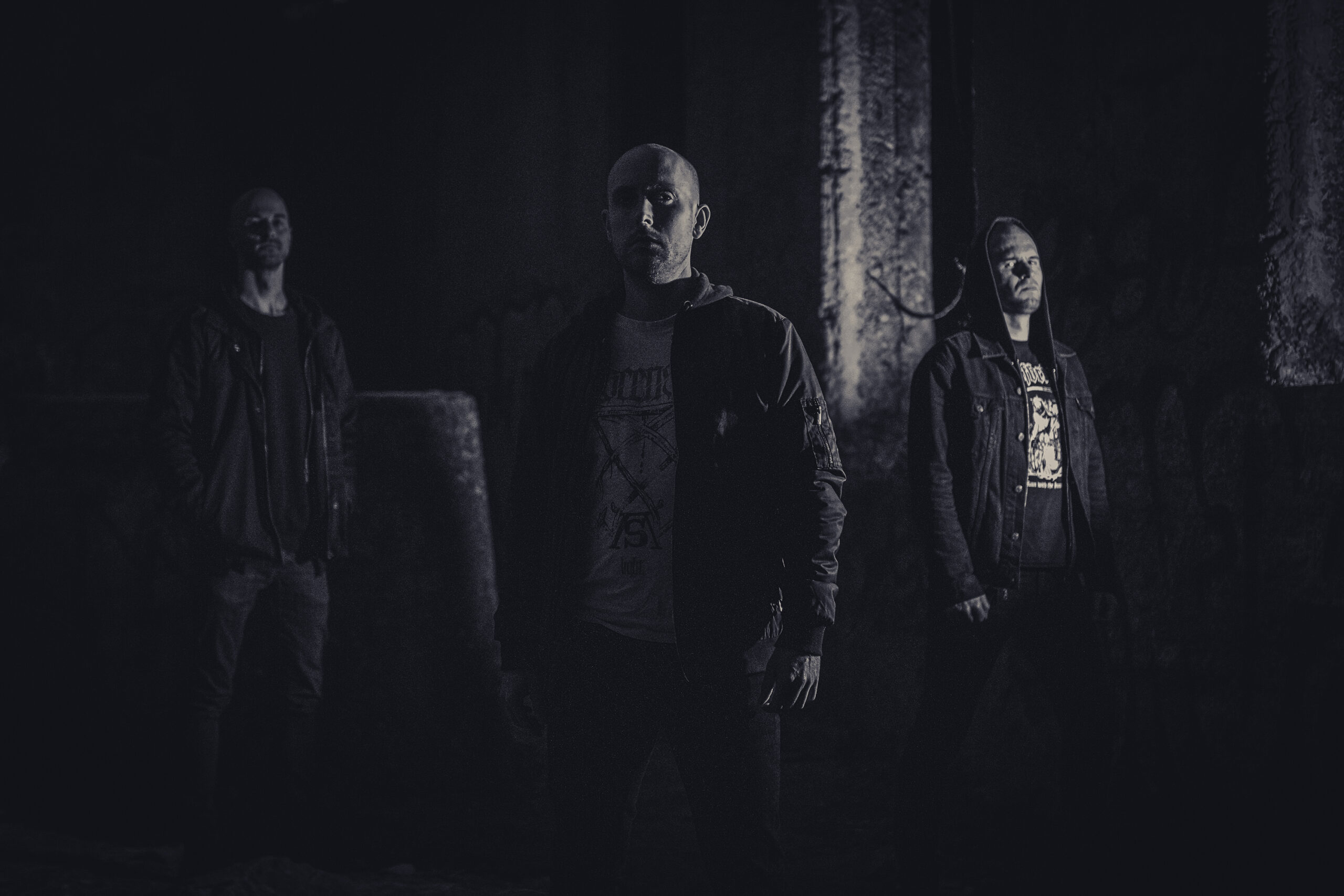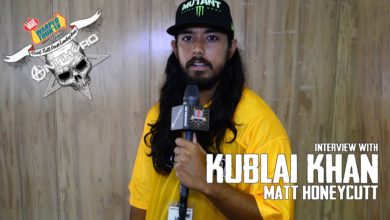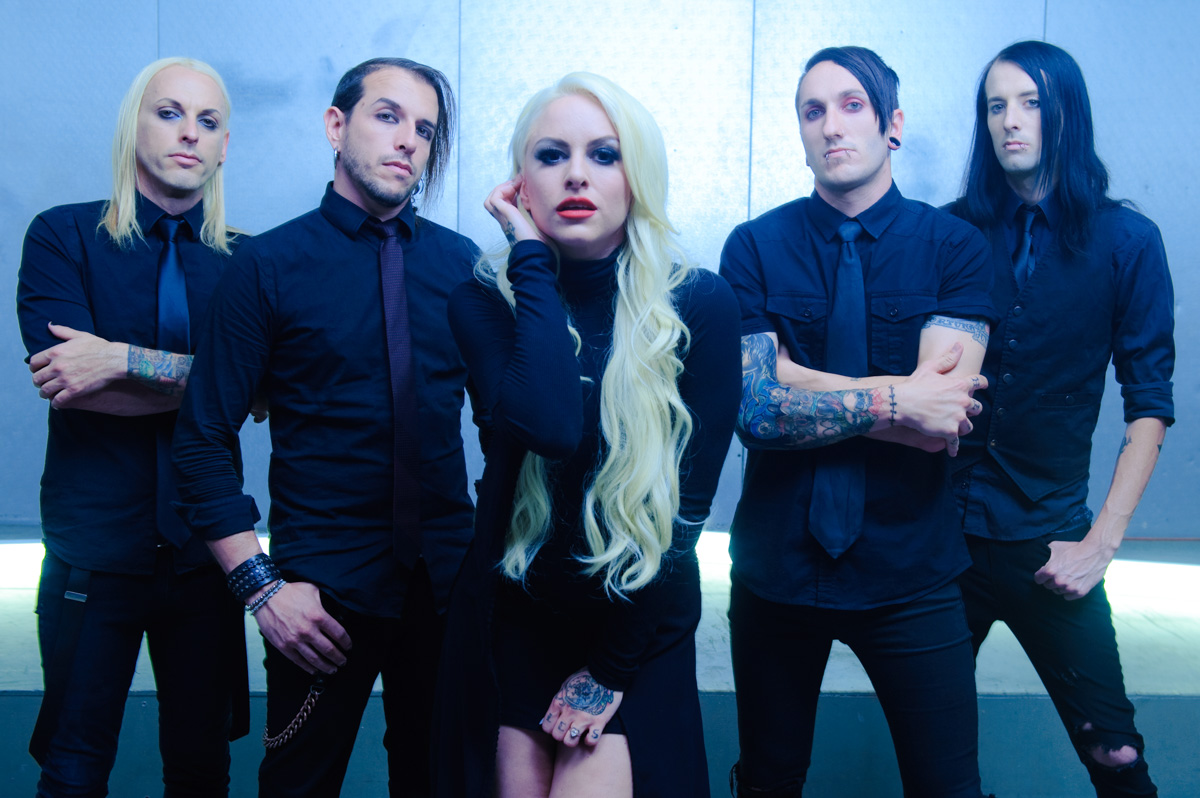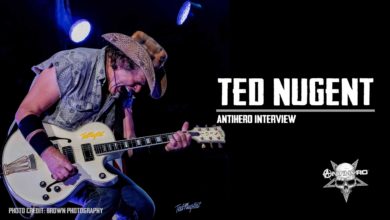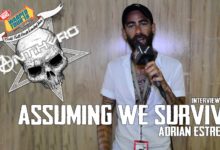ANTIHERO: Your music often explores dark and introspective themes. How do you personally connect with the themes in your songs, and how has this connection evolved throughout your career?
ULCERATE: We deeply connect with these themes. Where we land with the lyrics is always an extension of the sonics – in the same way, the visual art provides another dimension of immersion, so too do the lyrics. We’ve always appreciated artists whose vision is expressed as a complete and total package and have never understood aggressive music with juvenile or irreverent thematic exploration. It cheapens the whole affair. So, ugly music that evokes certain emotions should be supported by lyrics that do the same. The connection has only deepened over the years, we are more meticulous than ever at this point in how things are phrased and executed, and what they are to communicate.
ANTIHERO: ULCERATE’s sound is often described as dissonant and chaotic, yet meticulously crafted. Could you explain the balance between chaos and precision in your music, and how you achieve this unique sonic landscape?
ULCERATE: The intersection of filth and subtlety has always appealed to us – the tension it creates whereby things could veer off-track at any time creates very exciting music for us (not necessarily just with our compositions either, most of our favorite bands walk this fine line also). This stems from the initial compositions, through to the choice of instrumentation tones and timbres, and ends with the final performances. For us throughout the years we’ve achieved this by pushing the envelope with our playing in terms of some sort of mastery over our instruments, but then opting for a playing (and tone) approach that favors attitude and expression, sometimes at the cost of a ‘perfect’ performance. The choice of timbre here again influences how you play and what you play and therefore feeds back into the composition. So, it’s very circular in nature.
ANTIHERO: “Stare Into Death And Be Still” features intricate and multi-layered compositions. Can you discuss the collaborative songwriting process within the band and how you manage to create such dense, immersive soundscapes?
ULCERATE: Our process starts with myself and guitarist Michael Hoggard formulating initial melodic or rhythmic ideas outside of the rehearsal space – could be chord progressions, first steps towards a riff, drumbeat, mood, etc. From here we’ll spend an entire evening working up that single idea into some sort of self-contained riff that we’ll then take to the rehearsal space. From here, the part is looped while I work through permutations of drum ideas via improvisation until we land upon something that feels like it’s creating the right amount of energy. Rinse and repeat until we have a library of self-contained pieces which we’ll then start to arrange into a cohesive whole. Once we have the skeleton of a whole song with drums and a single guitar line, we multi-track the drums and begin work on the other strings and vox. Here we’re working out ideas for augmentation, counterpoint, harmony, and additional melody lines. The entire process is very layered and at times labor intensive, but it ultimately gets us the outcomes we’re searching for.
ANTIHERO: Your lyrics are often abstract and open to interpretation. What role does ambiguity play in your songwriting, and do you find it important for listeners to create their meanings from your lyrics?
ULCERATE: I think abstract is the wrong word, I don’t think they’re abstract at all. But they are evocative and metaphorical. I think the best lyrics aren’t telling a literal story or arc, they are supplementing the musical vision and providing an extra layer of humanity that instrumentation alone cannot communicate. This is not punk or hardcore, there is no social commentary or documentation of earthly politics – that would be a very shallow approach for a musical landscape such as ourselves. Simply put – the lyrics are the narrative juxtaposition of the sonic output.
ANTIHERO: New Zealand is renowned for its stunning natural landscapes. How, if at all, does the natural beauty of your homeland influence your music and your creative mindset when writing and performing?
ULCERATE: It has nothing to do with it in all honesty.
ANTIHERO: ULCERATE’s music can be emotionally intense and cathartic. How do you personally navigate the emotional depths of your music, both in the writing process and during live performances?
ULCERATE: We enjoy it immensely, there’s no need for any navigation. We made it, it is ours, we are it.
ANTIHERO: Technicality is a hallmark of ULCERATE’s music, but how do you ensure that technicality doesn’t overshadow the emotional impact of your songs?
ULCERATE: It’s an absolute balancing act, and certainly at times with early material we have got the balance wrong in my opinion. With age, we’re learning more and more how to hear our output, which is helping temper things. With SIDABS we made a conscious effort to bring the songwriting 100% in line with our current tastes, which meant that a lot of the more unintentionally obfuscated material was avoided.
ANTIHERO: “Stare Into Death And Be Still” was released during a challenging time globally due to the pandemic. How did this affect your ability to promote and tour the album, and what did you learn from this experience?
ULCERATE: It fucked us hard. We had the North American tour we are about to start tomorrow booked, as well as Australasian dates ready to go, all of which got immediately canceled. In the following 2 years, we managed all but 3 local shows, and even those had issues. And the extreme lockdowns in Auckland meant that even writing and rehearsing became extremely difficult. So, it was a very bleak time for us, which only came right in late 2022. An enforced creative stasis that I’m not interested in repeating any time soon.
ANTIHERO: Many metal bands have a strong connection to visual and graphic art. How do you collaborate with visual artists to create album artwork and merchandise designs that complement your music?
ULCERATE: All of our visual material has been handled by myself since the start of the band.
ANTIHERO: ULCERATE has been a part of the metal scene for a significant amount of time. How have your musical influences evolved, and are there any newer bands or artists that have had a notable impact on your recent work?
ULCERATE: Not so much, if I’m being honest. We have peers and contemporaries who we listen to broadly, but I wouldn’t say they impact our output.
ANTIHERO: ULCERATE has a reputation for pushing the boundaries of death metal. Are there any particular elements or styles outside of the genre that you’d like to explore in your future music?
ULCERATE: We’ve always brought in outside influence and bent it to our will, and we will continue to do so.
ANTIHERO: In the digital age, music consumption and distribution have changed significantly. How do you see the role of physical formats like vinyl and CDs in the context of your music, and how do they contribute to the overall experience of your releases?
ULCERATE: Vinyl especially is a format that interests us greatly. But both over a tangible, physical element that blends the visual and sonic outputs, which I see as a total travesty that we’re losing. But I’m also fully aware that this is mostly a generational concern, and that already most of my friends have succumbed to the Spotify-only model of absorbing music, which is deeply troubling. I highly recommend Ted Gioia’s thinking on this subject – how the concept of ownership influences the worth (and effort expended in earning that worth) we place on art. Streaming removes this entirely and leaves us with an infinitely inferior digital ‘experience’. Owning the physical album adds an element of friction to absorbing the art, which I believe adds to a deeper connection.
ANTIHERO: ULCERATE has a dedicated and global fanbase. How do you stay connected with your fans, and what role do they play in shaping your creative direction and decision-making as a band?
ULCERATE: In this space, we are very much Luddites. We use social media to only post updates regarding releases or live shows and have near-zero ‘fan interaction’. What I do see from a lot of other artists feels very cheap and used-car-salesman-like, and we have zero interest in that. We take no feedback from outside influences, and only from our inner circle will we hear opinions on whether or not we’re making the right moves. Take it or leave it.

